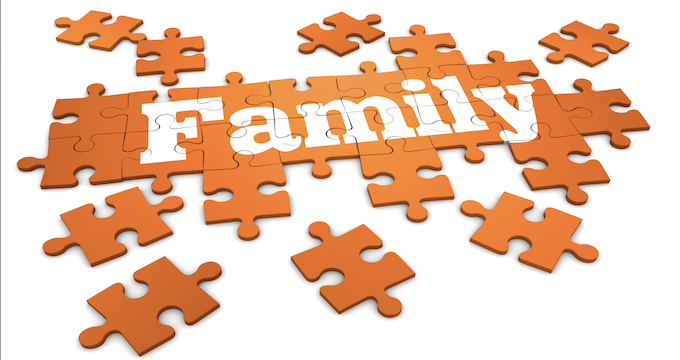My daughter is in a Grade 6 class with a Nigerian boy called Ibrahim. He has lived with his mum here in Melbourne since fleeing the forests of Nigeria two years ago. Ibrahim’’s father now lives in Canada. They were a family unit when Ibrahim was a baby but Ibrahim has not had a continuing relationship with his Dad for many years. Ibrahim cannot remember his father but he tells the kids in his class that he knows him.
This morning it is the Father’s Day celebration at school. To blend in, Ibrahim has told his classmates that his mum is bringing him to school for the Father’s Day breakfast. His mother will not be coming to the breakfast, as she starts work at the factory at 5 am. Ibrahim knows this but plays along with the charade of attending anyway.
The masks people wear
My daughter and I have been talking about the masks people wear. We are thinking that Ibrahim has a mask. We think he may have worn his mask this past week when the teacher gave him a Father’s Day card with ‘father’ blanked-out on the front, so he could write to someone else instead … someone who was not his father … someone who could replace his father. Ibrahim bravely asked for a Father’s Day card instead of the blanked-out version but the teacher refused him. Possibly she thought she was doing the right thing because Ibrahim didn’t have a relationship with his father anyway.
In a democratic inclusive community all voices of people in our school communities need to be heard but on days like Father’s day, media and the status quo dominate. In thinking about Ibrahim’s situation let’s consider which people in our school communities may feel challenged by or uncomfortable on Father’s Day celebrations at school.
Let us also take into consideration this discontent in the days and weeks before Father’s Day where it is heavily publicised in social media, on the TV and in our magazines and newspapers. Reflect upon a child whose father has died or a child whose father has been incarcerated. Perhaps a child who has lesbian parents or who is fostered or adopted. Consider a child where the mother is the sole parent through separation or divorce or a child conceived by an anonymous donor.
How does the child feel?
Perhaps contemplate how Father’s Day feels for a child whose father abuses them? From a wellbeing perspective on days like Father’s Day, Mother’s Day and Grandparent’s Day the dominant culture in schools may be inadvertently re-traumatising some children because of our socio-cultural inability to look grief and loss in the eye. Perhaps it is easier for the majority of the school community to look away from the pain and maintain the status quo.
Back to Ibrahim . During this school week the children made Father’s Day gifts twice … once with the homeroom teacher and once with the library teacher. I wonder if these teachers knew that Ibrahim wanted a ‘real’ fathers day card for his dad. Ibrahim was required to make a gift for someone else who was not his father. As with the Father’s Day card incident this denotes three times where Ibrahim has to face his father’s absence in the presence of a classroom full of children. Then he has to navigate his father’s absence again when he brings the card and gift home for his mother to see.
Children like Ibrahim could write someone else’s name on the blanked out version of the card and bring their uncles or their grandfathers to breakfast but it would seem that any way you look at it, their father’s absence is still highlighted. The difference between children who have a father present and those children who do not becomes obvious when they are required to participate in these activities.
Fear and taboo
For instance, consider the reaction of volunteer staff when a child who has been bereaved of their father fronts up to the Father’s Day gift stall with their class and the volunteer behind the desk says ‘What would you like to get your Dad?’ and the child says ‘my dad’s dead’. This type of situation highlights possible feelings of fear and taboo around the topic of death and the struggle to meet others’ grief head on.
Let’s look briefly at what re-traumatisation could mean for parents who have suffered grief or loss. Every week for the last six weeks I have read on the header of the newsletter ‘Father’s Day breakfast, Friday 5th September’.
That is one evening every week for the past six weeks that I think of Ibrahim’s mother. I think of her reading this and reflecting on Ibrahim’s absent father or worrying how her son will navigate the Father’s Day breakfast at school. I wonder how she will traverse Father’s Day at home when her son presents the gift he has made, while she grieves the loss of a partner and a father for her son.
Family structures have changed
Family structures have changed and no longer solely represent the 1950’s nuclear family type in a white western construct. Schools have the chance to lead and celebrate the diversity of families rather than focus on the gendered exclusive representation of a male or female parent. Schools might choose to celebrate these days differently or not at all. Perhaps renaming them as a ‘Family Day’ or ‘Carer’s Day’ will meet the need of present-day family structures.
Taking the opportunity to celebrate or mourn the changed or changing nature of family life allows compassion to thrive instead of ignoring the silenced minority and their wish to just blend in. Paying attention to who might be missing this year at the Father’s Day Breakfast may be the first step forward. It may mean a move towards a compassionate, inclusive school community. I hope this morning at breakfast that someone … anyone … will take a look around and ask, ‘Where’s Ibrahim?’

Carla J Kennedy is a lecturer/researcher in education with the School of Education/Arts/Community at Federation University, Victoria, Australia. Her research using social inquiry has focused on school communities investigating compassion, existing power and inequalities in schools.





